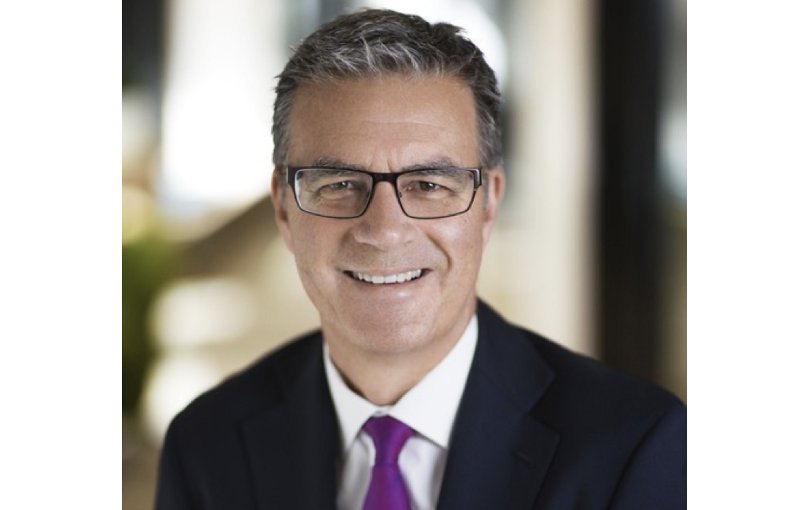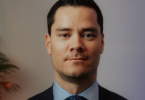John Meacock is the Global Chief Strategy Officer for Deloitte and a member of Deloitte’s Global Executive Committee. Meacock, who has decades of industry experience in the financial services, transportation, property, telecommunications and government sectors, is responsible for Strategy and Innovation across the Deloitte Global network, including developing the Global Organization’s strategy, charting the course for the transformation of the organization to new business models and new ways of servicing clients. As part of this, he oversees the organization’s response to Industry 4.0 and the changing environment due to competition, regulation and new technologies. He spoke to The Innovator in Davos during the World Economic Forum’s annual meeting about Deloitte’ digital transformation and what he expects Deloitte’s business and other businesses to look like a few years from now.
Q: You are responsible for the organization’s response to Industry 4.0 and the changing environment due to competition, regulation and new technologies. What does that entail?
JM: We have run a phenomenally successful business with rapid growth but in a world of disruption and new technologies, despite the success, there is a compelling case for change. We have to move to new business models and adopt new technologies to continue our successful run. This means changing the way we work with clients and offering them more asset-based IP such as pre-configured AI and data solutions. We need to be able to demonstrate to our clients that in addition to starting with all this expertise and experience we have this platform, this tool or this asset that can help solve your problem.
Q: Does this require your executives to develop new skill sets?
JM: Today there is technology in everything we do. It is a significant shift and does require upskilling in all parts of our business. It is always an interesting challenge in any organization. Intellectually people get the need to change, but change is hard. I am a massive believer in the fact that all organizations have to move to life-long learning; continually re-skilling their people and adapting how they work. What we are learning about AI is that all the talk in the AI community is about algorithms and the technology but to be successful the focus has to be on how it is applied and how you develop new solutions and new business models.
Q: What sorts of new business models are emerging in your sector?
JM: There are some significant shifts across all our businesses. For example, in tax we’ve seen some large corporates outsourcing all of their tax function. In consulting we have clients that want to pay more on outcomes, such as cost savings or revenue uplifts achieved. In a number of areas we are moving to running managed services and becoming part of the way the company operates.
Q: All sectors are grappling with embracing new business models. What does this mean in terms of change to the company culture?
JM: I see a lot of companies doing digital rather than being digital. Too many organizations are just digitizing what they do now rather than seeing it as an opportunity to change the model and rethink their business. Every industry needs to shift their business model but instead many are comfortable in just bringing limited AI into customer-facing applications. They are not really tackling disruption and true transformation. Disruption has dropped down on people’s list of concerns and so many are running Red Queen innovation, a term that refers to the Red Queen in Alice in Wonderland who tries to run forward but is only able to run as fast as the scenery is moving. In Red Queen innovation, the companies are better than they were two years ago but they are really in the same competitive place as their competitors have also improved. And now competition is coming from many quarters.
Companies also need to be sure their digital strategy is integrated with the company’s overall strategy. I spoke on a panel here in Davos today on ethics, technology and sustainability with the founder of Dell, the head of Airbus Defense and the CSO from Verizon. We talked about how you have to integrate your digital strategy with sustainability and ethics, tackling them in a wholistic way. There can’t be a separation of these things.
Q: What do you expect Deloitte’s business and other businesses to look like a few years from now?
JM: There will be a mix of models that Deloitte uses to engage with clients and solve client issues, which means we will earn revenue in multiple ways. I expect we will be deeply aligned with clients and involved in their businesses in a much bigger way. I think we will still have a very strong alliance-base, working with big technology players. We will be the leader in integrating capability — bringing the right range of insights, experience and client expertise together with alliance partners technology capability. The world will be different, partly due to a significant shift to private capital. When private companies have a greater share of the market, compliance issues won’t go away, however they will take on a different form from what is required by public companies.
We run a very global business. Even though we are in an era of greater nationalism, we still see most corporates trying to work globally; the different market structures and regulatory regimes are not always helping. The spread of Chinese, Japanese and Asian companies across Europe and the developed world will shift the nature of business generally. Understanding the different cultures and the way China or other Asian nations work will be challenging for a lot of corporates. The technology advances in China are just stunning so my advice to companies is to make sure you go to China, see what is happening there and learn about their culture.
Incumbents in most industries are still defining themselves against their traditional competitor sets. I always ask them ‘Is that really your competitor? The world is changing fast and the boundaries between industries are shifting.
In all this world of change, I remain incredibly optimistic. It is very exciting.
I do find it disappointing that a lot consultants and think tanks keep talking about all the jobs that will be lost due to AI, as no technology has ever taken away more jobs than it has created. I am incredibly positive about the shift and the future of career opportunities for people.
The rise of new technologies should be seen as being all about the change in business models. I don’t see many organizations that have really become customer-centric but if they do make that commitment to really put the customer at the center, they will succeed.
To access more of The Innovator’s Interview Of The Week articles click here.







